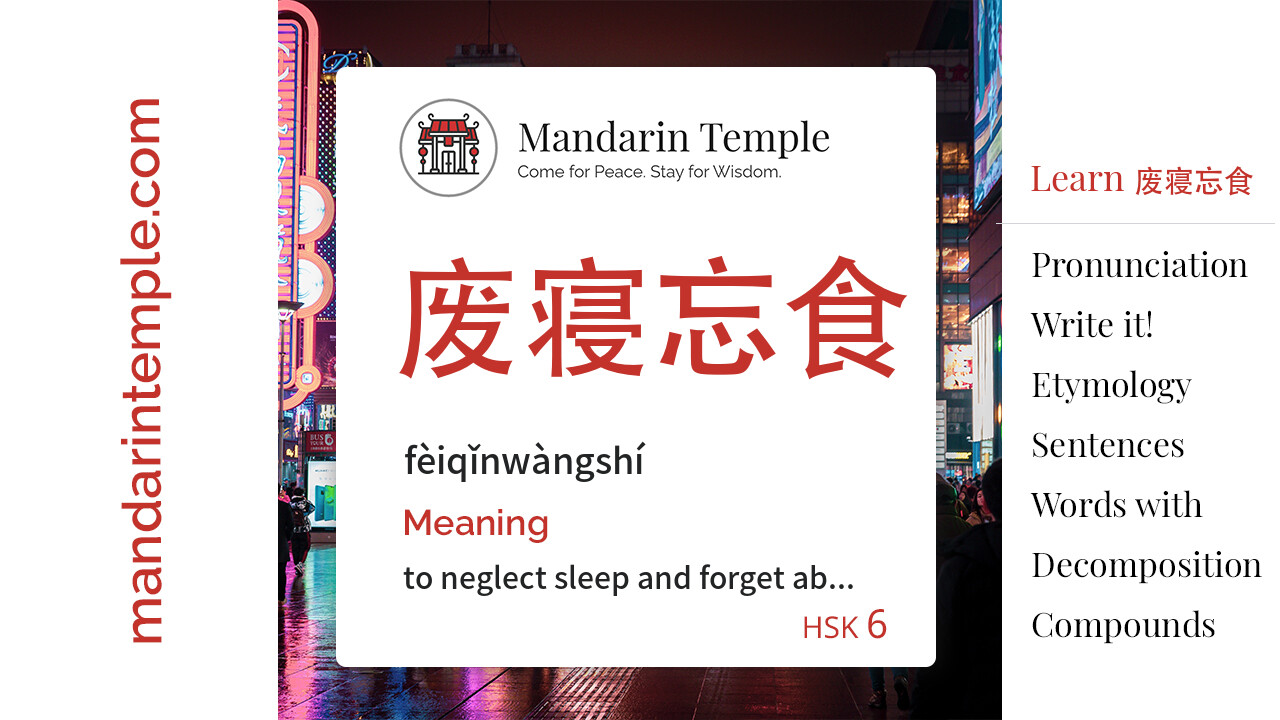废寝忘食 fèiqǐnwàngshí
废寝忘食 fèiqǐnwàngshí Meaning
Learn the Pinyin Pronunciation and 3 English Translations of the word 废寝忘食 fèiqǐnwàngshí .
- Pīnyīn Pronunciation
- fèiqǐnwàngshí | fei4 qin3 wang4 shi2
- English translation
- to neglect sleep and forget about food (idiom)
- to skip one's sleep and meals
- to be completely wrapped up in one's work
Learn the Chinese word 废寝忘食 fèiqǐnwàngshí in 6 easy steps:
Write it!
Practice your Chinese writing skills and learn precisely where and when to draw every stroke of the
Chinese word 废寝忘食 fèiqǐnwàngshí .
Press the Show Strokes button to see the strokes and their order and hit Start Drawing when you are
ready to practice.
Recommended Books for Learning Mandarin Chinese
AMAZON BOOKSHELF
AMAZON BOOKSHELF
